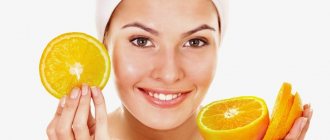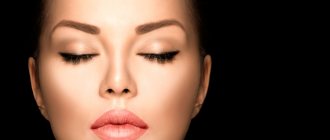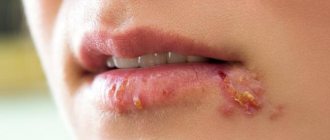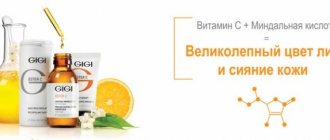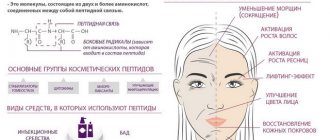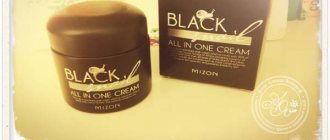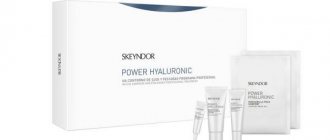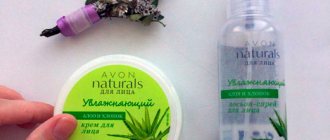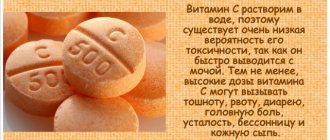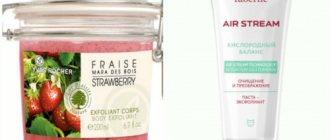“No parabens!” - this slogan swept across the world after the publication of the results of laboratory studies on the effect of these substances on the incidence of breast cancer. In the wake of the scandals, the European Union urgently lowered the threshold concentrations of parabens in cosmetics and banned their use for children under 3 years of age. Manufacturers of organic cosmetics have completely abandoned these preservatives. Is it really so scary, is there any real harm? We will try to rehabilitate parabens, which have been used in more than 80% of cosmetic products for almost 100 years.
Origin of parabens
Esters of para-hydroxybenzoic acid give the name to preservatives parabens. Being derivatives of benzoic acid (and it was used for food preservation 400 years ago), they have bactericidal, bacteriostatic and antifungal effects. Parabens are active against most pathogenic microorganisms.
Parabens are unique substances that ensure the safety of cosmetics, and scientists have not yet found a worthy replacement for them
Parabens are found in some plants as a natural antimicrobial defense. Synthetic preservatives are obtained by reacting hydroxybenzoic acid with alcohols.
How to protect yourself from the negative effects of parabens
The composition contains the designations E-parabens and sodium salts. Cosmetologists advise buying cosmetics with a short shelf life. It is necessary to buy cosmetics in tubes and packaging with a dispenser. There is no need to buy it in jars. Because to prevent spoilage of the cream, an increased dosage of preservatives is added to it.
You can completely protect yourself from the influence of preservatives if you use homemade cosmetics. At home you can prepare cream from natural ingredients. This is the best alternative to deodorants filled with chemicals.
Why are parabens added to cosmetics?
Only synthetic parabens are used in the production of cosmetics. Their use makes long-term storage and use of the final product possible. In addition, they act as a stabilizer, maintaining the desired consistency of the cosmetic product and combining its components into one whole.
All cosmetics containing water without preservatives become unusable after three days. Imagine that microorganisms that have entered such a cream or lotion from the air after opening the package begin to actively multiply in a favorable environment. As a result, they would end up on our skin or mucous membranes, causing at least irritation and inflammation.
Parabens are stabilizers; they do not react with other ingredients
After high-profile scandals about the allegedly carcinogenic activity of parabens, they are still used in the production of cosmetics. They are used by European, American and even Japanese manufacturers. And Japan is known to have the strictest laws regarding public health.
Names of preservatives in the composition and their permissible quantities
The type of paraben is always written on the packaging of a cosmetic product. Some of them in the list of components may be indicated by a chemical name or as an additive under the letter E:
- methylparaben, E218;
- ethylparaben, E214;
- butylparaben;
- propylparaben, E216;
- isopropylparaben;
- isobutylparaben.
All face, body, hair, and even children's skin care products, as well as sunscreens, contain parabens as preservatives.
Decorative cosmetics contain:
- mascara;
- lipstick and lip gloss;
- liquid eyeliner and liquid shadows;
- concealers, highlighters, bronzers and foundations.
European and Russian manufacturers are guided by a preservative content of no more than 0.4% if one paraben is used, and no more than 0.8% if there are several of them.
How to reduce the likelihood of negative action
You can use cosmetics with parabens; if used wisely, they are safe. There are a few simple rules:
- simultaneously use no more than 1-2 products containing these preservatives;
- add natural ingredients or eco-cosmetics to your care procedures;
- immediately stop using the product if it causes any undesirable reactions;
- When purchasing a new brand of cosmetics, you should start using it gradually to make sure that your skin reacts normally;
- carefully study the composition before purchasing, know the designation of parabens in cosmetics.
How are parabens designated?
- ethylparaben: Ethylparaben;
- propylparaben: Propylparaben;
- methylparaben: Methylparaben.
For simplicity, you can remember that these substances include those labeled as E214 - E219.
Also, names can be replaced by chemical terms that are similar in meaning:
- propagine or metagin;
- hydroxybenzoate or oxybenzoate;
- hydroxybenzoic or hydroxybenzoic acids, their esters or salts;
It is worth considering that the manufacturer is obliged to indicate chemical components on the packaging only if their content exceeds 1%. Since the concentration of parabens is usually much lower, these substances may not be listed in the composition at all.
Possible harm of parabens
Allergic reactions to parabens have been well studied and are rare. They are possible if the product is applied to damaged skin. But in practice, even people with chronic dermatoses tolerate such cosmetics well.
Methylparaben poses a certain danger if it interacts with sunlight. It is better not to use cosmetics containing it in the summer, as the skin reacts more strongly to ultraviolet radiation and the aging process intensifies.
Parabens do not enter the general bloodstream through the skin and are not able to harm the unborn child.
The use of cosmetics with parabens during pregnancy will not harm the unborn child, since the concentration of these substances is very small and they do not enter the systemic bloodstream.
<…> the increase in fetal malformations does not depend at all on whether a woman uses soaps, cosmetics with parabens and other skin care products. Your worries about this will do more harm than parabens.
Elena Berezovskaya, obstetrician-gynecologist
https://klubkom.net/posts/51028
In 2008, a scientific review was published, which presented the results of studies that proved that parabens in cosmetics are not capable of causing any harm to health, even with constant use. They do not accumulate in the body and are quickly eliminated, even if taken orally or administered intravenously.
Harm-benefit ratio
A scientific controversy that began about 20 years ago concerned the hormonal activity of parabens and their ability to accumulate in the body, causing breast cancer. However, a refutation followed in 2006. American and German scientists have not found a cause-and-effect relationship between cosmetics with parabens and an increased risk of cancer.
As for the ability of parabens applied to the skin to affect hormonal balance, it has been greatly exaggerated. In 2005, the results of studies were published confirming that the estrogenic activity of parabens in cosmetics is negligible and cannot affect hormonal levels and reproductive function. Thus, the possible harm from parabens is significantly inferior to their beneficial properties.
Parabens do not have any toxic effects on the human body when used in concentrations acceptable in cosmetics. <…> Preservatives that are used instead of parabens are often poorly studied or cause more harm. For example, methylchloroisothiazolinone and methylisothiazolinone (Methylisothiazolinone, Methylchloroisothiazolinone, MIT) are considered highly allergenic. <…> If you are still worried about the possible estrogen-like effect of parabens, then avoid products that contain Propyl-, Isopropyl-, Butyl-, Isobutylparaben.
Nina Sereeva, dermatovenerologist
https://news.rambler.ru/diy/38969131–10-dokazannyh-faktov-o-parabenah/?updated
Parabens - what are they?
Parabens are a number of chemical components used in the cosmetics industry, medical preparations, and less commonly in the food industry. They have antibacterial and antifungal properties and are important for extending the shelf life of various products that require preservatives. In scientific terms, parabens are a series of esters of para-hydroxybenzoic acid. This acid can be found in natural components, and parabens are exclusively chemical derivatives. Any cosmetic product contains a water base and various herbal additives in the form of oils, esters, and extracts. Their long-term storage after opening the package exposes the product to the rapid proliferation of bacteria, as a result of which it becomes unusable. In order for the products to have the proper appearance and retain their declared properties for a long time, parabens are added to them in order to prevent the growth of bacteria. Otherwise, their absence would have a detrimental effect on the condition of our skin, nails and hair. One thing is for sure, they are not toxic, but their negative side has not yet been fully identified, which is probably why there is a skeptical attitude towards them.
How to determine the presence of parabens in cosmetic products
This couldn't be easier; just look at the ingredients listed on the label of your products. Some components of cosmetic products are designated on the labels by the letter E with a specific digital value. For example: E214-ethylparaben, E216-propylparaben, E218-methylparaben, butylparaben, benzylparaben, isopropylparaben, isobutylparaben.
It is necessary to understand that it is impossible to detect all preservatives in one product at once. Which one is used depends on what the product is intended for. The lowest percentage of parabens is found in decorative cosmetics. The greatest difference is between products with oily and liquid textures. You may be surprised, but the presence of parabens is in all of these products:
- In shampoos, hair styling products
- In shower gels
- Men's cosmetics. Aftershave, foams, gels
- Various creams
- Liquid soap
- Toothpastes
- Eau de toilette, perfume
- Children's cosmetics
- Decorative cosmetics
- Medicinal products
The presence of parabens has been noticed not only in our cosmetics industry; countries in Europe, Asia and America similarly use them in their cosmetic products.
Positive aspects of parabens
Despite all the controversy about their dangers, they are currently among the most effective preservatives.
- Their use significantly increases the shelf life of cosmetics, medicines and food products while maintaining all useful qualities and appearance.
- More often, preservatives do not provoke allergic outbreaks and are calmly accepted by the body.
- Due to the low price of the preservative, the final product has an affordable price with high quality products.
Harm or benefit of parabens in cosmetics, their effect on the body
Many researchers ask this question, but, unfortunately, it is not possible to get a concrete answer. Why are parabens dangerous in cosmetics? There is an assumption that they tend to accumulate in the body, negatively affecting hormonal levels, and can lead to serious diseases. It's all about preservatives, similar to the female hormone estrogen. And excess estrogen negatively affects some people, especially women during pregnancy. A high level of estrogen can provoke disturbances in the development of the fetus and disruptions in further reproductive activity.
With a large accumulation of preservatives in the body, the risk of breast, uterine and testicular cancer in men increases.
Paraben preservatives have the ability to increase the negative effects of the sun. They affect DNA molecules, causing the skin to age too quickly. As a result of applying care products, the opposite effect is obtained.
Allergic reactions to them are rare, but no one completely excludes them. Therefore, although in isolated cases, there is a possibility of occurrence.
A high proportion of guilt regarding their presence and harm to health relates to deodorants. This mistrust of them was caused by a number of studies in which traces of parabens were identified in the analysis of breast cancer tumors. The cause of preservatives entering the body was supposedly deodorants. Later, a refutation immediately arises: the composition of deodorants does not contain a preservative, therefore, does not require parabens. As they say: “How many people, so many opinions.” Some really refute the harm of parabens, others are persistently confident in their negative impact, and are looking for an alternative to them.
If you are afraid of parabens
If you are not convinced by the research data and you still fear for your health, read the list of ingredients on the packaging of the cosmetic product and choose one that contains paraben with the lowest hazard class.
Table: list of parabens used in cosmetics
| Paraben | EWG SkinDeep hazard rating out of 10 points |
| methylparaben (E218) | 4 |
| ethylparaben (E214) | 4 |
| propylparaben (E216) | 5 |
| butylparaben | 7 |
| benzylparaben | 2 |
| isobutylparaben | 7 |
| isopropylparaben | 7 |
You can minimize possible harm by following several rules:
- do not leave makeup on your face overnight;
- do not use sunscreens with methylparaben;
- stop using the product if you experience side effects;
- pre-test cosmetics if they contain parabens that are new to you.
Paraben should be last on the ingredient list. Do not buy a product if the preservative is not at the end, but at the beginning or middle of the list; its concentration may exceed the permissible level.
Popular purchased products without parabens
There are many paraben-free products on sale, including:
- Universal day face cream “AUR PLUS 5 in 1”, Maurya
- a product from an Indian manufacturer contains components that moisturize, slow down the aging process of the skin, and also remove harmful substances. The composition is rich in almond oil, wheat germ oil, shea butter, vitamin E, Tulsi extract, etc. Volume - 50 ml, price - 410 rubles. - Cleansing foaming gel for oily problem skin “EFFACLAR”, La Roche-Posay
- has a physiological pH of 5.5, does not contain parabens, alcohol, dyes, soap, developed on the basis of thermal water. The product cleanses the skin of excess sebum, impurities and makeup residues, leaving it fresh and clean. To use, lather the product in your palms with a small amount of water and apply to the skin with gentle movements. Volume - 200 ml, cost - 859 rubles. - Intensive moisturizing cream "Arctic Aqua", Lumene
- a product with a delicate texture allows you to balance the optimal level of moisture in the skin and provides deep hydration for a long time. The cream from a Finnish manufacturer contains the purest Arctic spring water, which is enriched with minerals beneficial to the skin, and is used for normal and dry skin. Volume - 50 ml, price - 402 rubles.
Video review about parabens:
What do the studies say?
For about a decade, the debate on assessing the safety of parabens has not subsided. During this time, the size of the doses, which, according to scientists, will not harm us, have been questioned more than once. However, the very fact that these doses have been steadily reduced over the past decade (for example, Propylparaben and Butylparaben are conditionally "safe" at concentrations below 0.19% relative to the 0.4% that was previously effective and considered safe) is at least cause for concern. Think carefully before using exclusively cosmetics that contain them. Most substances are still being assessed and tested by global committees.
Parabens are generally considered safe in minimal doses, and these doses are still being monitored, meaning the safe minimum is constantly changing.
Despite this, the compounds of these substances are included in the list of safe preservatives. Proponents of their use present their arguments, in particular, claiming that there are natural parabens - esters of p-hydroxybenzoic acid, found in nature - in blackberries, raspberries and vanilla. Another undoubted advantage is their wide range of effects.
An excerpt characterizing Propylparaben
- Well, thank you. Do you think I'm not grateful to you? – Anatol sighed and hugged Dolokhov. “I helped you, but I still have to tell you the truth: it’s a dangerous matter and, if you look at it, stupid.” Well, you take her away, okay. Will they leave it like that? It turns out that you are married. After all, they will bring you to criminal court... - Ah! nonsense, nonsense! – Anatole spoke again, wincing. - After all, I explained it to you. A? - And Anatole, with that special passion (which stupid people have) for the conclusion that they reach with their minds, repeated the reasoning that he repeated to Dolokhov a hundred times. “After all, I explained it to you, I decided: if this marriage is invalid,” he said, bending his finger, “then I don’t answer; Well, if it’s real, it doesn’t matter: no one abroad will know this, right? And don't talk, don't talk, don't talk! - Really, come on! You will only tie yourself up... “Get to hell,” said Anatole and, holding his hair, went out into another room and immediately returned and sat down with his feet on a chair close to Dolokhov. - The devil knows what it is! A? Look how it beats! “He took Dolokhov’s hand and put it to his heart. - Ah! quel pied, mon cher, quel regard! Undeesse!! [ABOUT! What a leg, my friend, what a look! Goddess!!] Huh? Dolokhov, smiling coldly and shining with his beautiful, insolent eyes, looked at him, apparently wanting to have more fun with him. - Well, the money will come out, then what? - What then? A? – Anatole repeated with sincere bewilderment at the thought of the future. - What then? I don’t know what’s there... Well, what nonsense to talk about! – He looked at his watch. - It's time! Anatole went into the back room. - Well, will you be there soon? Digging around here! - he shouted at the servants. Dolokhov removed the money and, shouting to the man to order food and drink for the road, he entered the room where Khvostikov and Makarin were sitting. Anatole was lying in the office, leaning on his arm, on the sofa, smiling thoughtfully and gently whispering something to himself with his beautiful mouth. - Go, eat something. Well, have a drink! – Dolokhov shouted to him from another room. - Don't want! – Anatole answered, still continuing to smile. - Go, Balaga has arrived. Anatole stood up and entered the dining room. Balaga was a well-known troika driver, who had known Dolokhov and Anatoly for six years and served them with his troikas. More than once, when Anatole’s regiment was stationed in Tver, he took him out of Tver in the evening, delivered him to Moscow by dawn, and took him away the next day at night. More than once he took Dolokhov away from pursuit, more than once he took them around the city with gypsies and ladies, as Balaga called them. More than once he crushed people and cab drivers around Moscow with their work, and his gentlemen, as he called them, always rescued him. He drove more than one horse under them. More than once he was beaten by them, more than once they plied him with champagne and Madeira, which he loved, and he knew more than one thing behind each of them that an ordinary person would have deserved Siberia long ago. In their revelry, they often invited Balaga, forced him to drink and dance with the gypsies, and more than one thousand of their money passed through his hands. Serving them, he risked both his life and his skin twenty times a year, and at their work he killed more horses than they overpaid him in money. But he loved them, loved this crazy ride, eighteen miles an hour, loved to overturn a cab driver and crush a pedestrian in Moscow, and fly at full gallop through the Moscow streets. He loved to hear this wild cry of drunken voices behind him: “Go! let's go!" whereas it was already impossible to drive faster; He loved to pull the man's neck painfully, who was already neither alive nor dead, avoiding him. "Real gentlemen!" he thought. Anatole and Dolokhov also loved Balaga for his riding skill and because he loved the same things as they did. Balaga dressed up with others, charged twenty-five rubles for a two-hour ride, and only occasionally went with others himself, but more often he sent his fellows. But with his masters, as he called them, he always traveled himself and never demanded anything for his work. Only having learned through the valets the time when there was money, he came every few months in the morning, sober and, bowing low, asked to help him out. The gentlemen always imprisoned him. “Release me, Father Fyodor Ivanovich or your Excellency,” he said. - He’s completely lost his mind, go to the fair, lend what you can.
